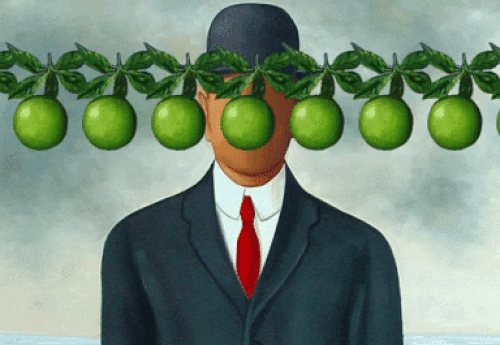Avoid These Clichés Like the Plague
While a well-placed allusion can enliven your prose, the use of trite, uninspired clichés will detract from your message and distract your reader. Here are five clichés you should avoid like the plague.
1. An Apple a Day
Example: “The State prosecuted the astronaut on a more serious charge because it wanted a second bite at the apple.”
Don’t distract your reader with an imaginary fruit salad. Instead, explain why your opponent shouldn’t get what it wants: “The State added a new charge only because the court rejected its first bail request.”
2. Giant Ball of Twine
Example: “Her state tort law claims were inextricably intertwined with Medicare regulations.”
Popular variations: inextricably linked and inextricably connected.
Don’t get stuck in the tangled web. Instead, emphasize why the connection matters: “Unless the provider violated Medicare regulations, Plaintiff’s state tort claims must fail.”
3. Your Eminence
Example: “Dr. Smith’s resume demonstrates that she is eminently qualified to opine on damages.”
Have you ever heard of an expert who is qualified, but not eminently so? I didn’t think so. The same goes for such expressions as eminently reasonable and eminently clear. Just stick to the facts: “Mary Smith is qualified to testify because she has a doctorate in economics and has testified in 24 other federal antitrust cases.”

4. Slip Sliding Away
Example: “If the Court allows large punitive damages in this case, it will head down a slippery slope.”
When I was in law school, my contracts professor challenged us to get through our entire course without once using the phrase slippery slope. We held out for just two days before someone slipped. Instead, just explain the danger of not doing what you want: “If the Court allows large punitive damages here, Defendants will be forced to pay many times for the same claim.”
5. Bald Faith
Example: “Plaintiff’s conclusory allegations and bald assertions cannot withstand scrutiny.”
I’m convinced that some of us lawyers develop keystrokes for these couplets. Is any allegation not conclusory? Is any assertion not bald? Judges tell me that these predictable pairs are like fingernails on the chalkboard. Better to focus on what makes the assertions so bald: “Although Jones claims promissory estoppel, he cites no facts to suggest that he relied on Smith’s alleged promise.”
I’ll stop now so I don’t go down a slippery slope of my own. But if I’ve opened Pandora’s box here and you think clichés are the Achilles’ heel of legal writing, please send me more of these tempting truisms—either the ones you love to write or the ones you hate to read.
 By
By





